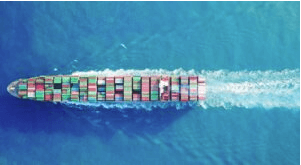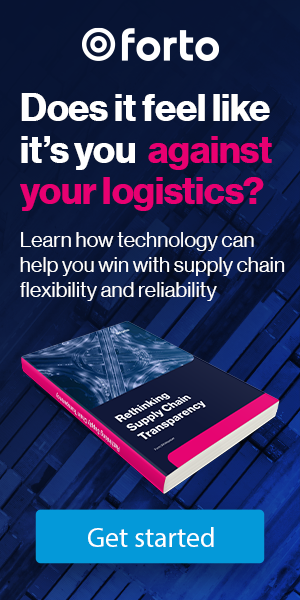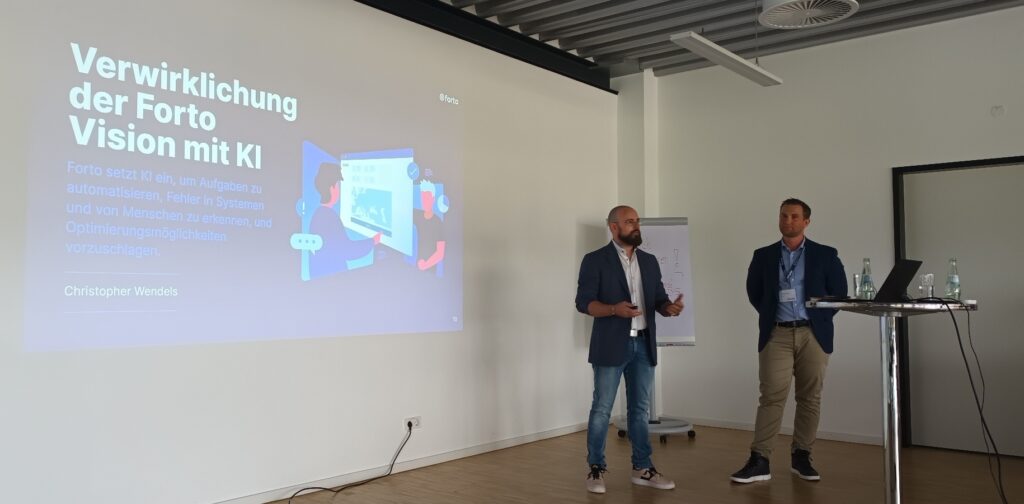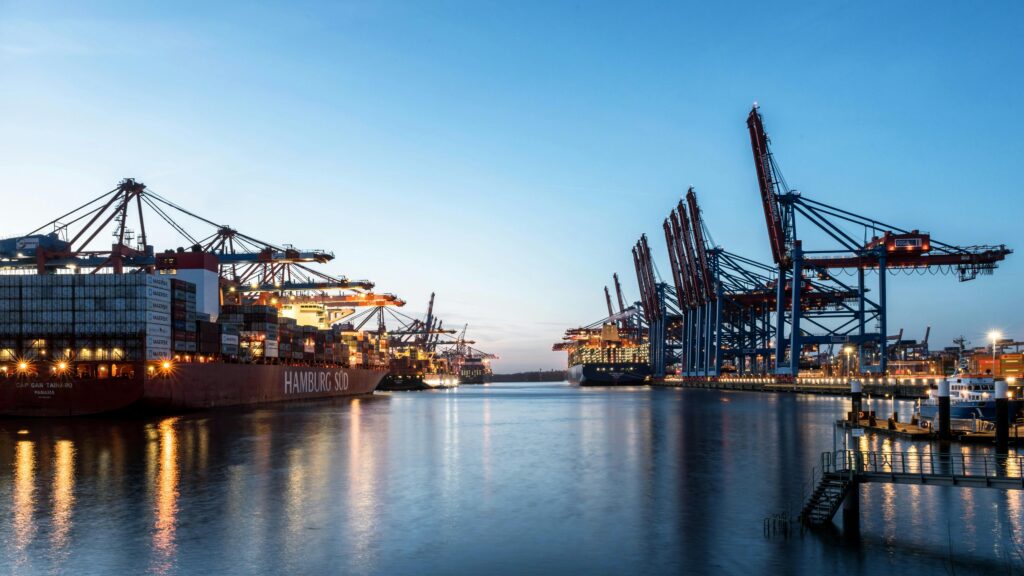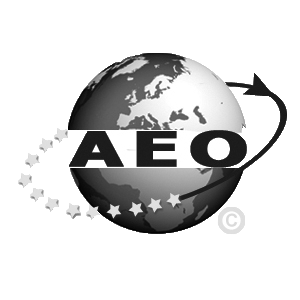The German Supply Chain Due Diligence Act (Supply Chain Act), also known in German as the Lieferkettensorgfaltspflichtengesetz (LkSG) or “Gesetz über die unternehmerischen Sorgfaltspflichten in Lieferketten,” is set to come into force on 1 January 2023, requiring companies doing business in Germany to identify, assess and remedy risks to human rights and the environment within their supply chains. The goal is fair, sustainable production conditions. This benefits not only the people involved within the supply chains, but also companies and consumers.
The law, which requires companies to disclose their efforts to address human rights violations and environmental risks in their supply chains, will have far-reaching implications for businesses in Germany and abroad. In this blog post, we will explore the business impacts of the German Supply Chain Act. We will discuss which businesses will be impacted by the law, the requirements, and what companies can do to prepare and comply with the new regulation.
Which companies are affected by the Supply Chain Act?
The law does not specifically target a particular industry or sector, even though the name might suggest that it only affects certain (transport) companies.
Starting January 1, 2023, The Supply Chain Act will apply to companies, regardless of their legal form, that have their head office or principal place of business in Germany and employ more than 3,000 employees in Germany or through a German contract abroad. The law also applies to foreign companies with a branch office in Germany of similar size. The calculation to determine the size of in-scope companies includes all the employees working in Germany across all related companies, branches, or divisions, even when the entities are registered as separate companies.
Important to know: On January 1, 2024, the law will expand to cover companies with head offices or branches in Germany with 1,000 or more employees.
What does “due diligence” in the Supply Chain Due Diligence Act mean?
To make production and working conditions more sustainable worldwide, the law requires companies to holistically review their supply chains and identify and address potential human rights and environmental risks. Companies must make reasonable efforts to identify hidden risks to ensure compliance. Risks include, for example:
Violations of occupational health and safety and human rights, such as
- Child and forced labor
- Disregard for occupational health and safety
- Withholding of adequate wages
Violations of environmental standards, such as
- Pollution of soil, water and air
- Harmful noise emissions and excessive water consumption
- Production, use and treatment of hazardous substances such as mercury and persistent organic pollutants
Contractors and direct suppliers
The legal requirements of the Supply Chain Act apply to all companies that are part of the supply chain of goods and services. They apply to their own business operations and those of contractual partners and external suppliers, which significantly extends companies’ corporate responsibility.
The Act makes due diligence mandatory along the entire supply chain, from raw material purchasing to final products. All steps required for the provision of goods and services – including transport and intermediate storage as well as the delivery to end customers – fall under the Supply Chain Act and will be the responsibility of the in-scope companies in the future.
More specifically, this means that companies that fall out of the scope of the Supply Chain Act may still have responsibilities towards in-scope corporations. This stems from the requirement for in-scope companies to conduct risk analysis on their suppliers and implement preventative measures if necessary.
What are the requirements of the Supply Chain Act?
As mentioned, the Supply Chain Due Diligence Act requires that companies look at their supply chains and address potential human rights and environmental risks. Companies are required to make a reasonable effort to identify hidden risks to ensure compliance.
Companies will need to implement effective risk management systems following the standards set out in the United Nations (UN) Guiding Principles on Business and Human Rights and the OECD Guidelines for Multinational Enterprises. They will also be required to report annually on their compliance with the Act.
The Supply Chain Act defines nine high-level requirements
- Establish a risk management system
- Define the party or parties responsible for compliance
- Perform regular risk analysis
- Issue a policy statement in line with Supply Chain Act goals
- Establish preventive measures in your business area and for direct suppliers
- Take corrective action when risks are discovered
- Establish a complaints procedure
- Implement due diligence obligations concerning risks at indirect suppliers
- Document and report on due diligence activities.
Companies must submit annual reports on their due diligence obligations to comply with the regulations. Non-compliance can lead to sanctions in the form of fines of up to €800,000, exclusion from public tenders, and, not least, loss of reputation. For partners and contractors of companies covered by the law, this may mean that previously existing cooperation could be terminated if the requirements are not met.
How can a company ensure compliance with the Supply Chain Due Diligence Act?
Affected companies must develop and implement policies and procedures to detect and mitigate risks. The law also encompasses supply chain activities worldwide, so potential violations must be considered globally.
6 best practices to ensure compliance with the Supply Chain Act:
- Conducting a risk assessment of the entire supply chain
- Mapping the supply chain to identify potential risk areas
- Identifying and evaluating suppliers based on their commitment to ethical sourcing practices,
- Implementing policies and procedures to prevent forced labor and human trafficking in the supply chain
- Providing training on the Supply Chain Act and related policies for all employees, contractors, and suppliers
- Monitoring compliance with the Supply Chain Act on an ongoing basis
Will EU law increase the requirements even further?
In Europe, countries, including the Netherlands, France, Switzerland, and Norway, are starting to create laws requiring certain supply chain due diligence elements. The common thread across all these new legislative efforts is that they provide transparency to consumers and decision-makers and make global trade sustainably fairer.
In addition to national efforts, an EU-wide law intends to create a uniform framework. The European Council adopted the draft of an EU supply chain law in December 2022. The law goes further than the national directives and already targets companies with more than 500 employees and an annual turnover of at least 150 million euros. Indirect suppliers and the use and disposal of manufactured products are also taken into account here. And, unlike the German Supply Chain Due Diligence Act, the EU directive provides for civil liability. Accordingly, member states must create an opportunity for those affected to sue for damages from the companies if they fail to comply with the requirements.
Negotiations on the final directive will start in early 2023 to pass EU-wide supply chain legislation in the same year. Once it comes into force, the member states must transpose the directive into national law within two years at the latest – at which point the German Supply Chain Act could also be tightened.
What can the Supply Chain Due Diligence Act tell us about the future?
The German Supply Chain Act is a decisive step to make protecting people and the environment along the supply chain a legal obligation for companies established in Germany. It is one of many European and international laws set to effect in the immediate future.
The Act signals a broader trend in corporate accountability and regulation to ensure that companies take responsibility for the conditions under which their products are made.
For in-scope companies, it means one thing above all: their own production conditions as well as upstream and downstream processes and partners must be closely inspected. Even companies not yet subject to the Supply Chain Act should familiarize themselves with its requirements, as they may no longer be considered suppliers for major customers without proof of compliance.
In the future, companies will have an even greater responsibility to carefully screen their entire supply chain to identify and address environmental and human rights risks. This includes developing policies and procedures to avoid or mitigate these risks and reporting on them annually.
Forto’s contribution to more sustainable supply chains
The German Supply Chain Due Diligence Act makes companies much more accountable by setting legally enforceable environmental and labor responsibilities that require more transparent and better-documented supply chains. What sounds like a complex task for individual companies is an important step towards sustainable and fair global trade.
With laws like this, sustainable action in the supply chain is changing from the choice of a few to the mandate of many. The future market winners will be sustainability leaders who embrace change and position themselves as drivers and innovators for sustainability.
At Forto, we provide sustainable logistics and visibility solutions that help you understand the environmental impact of your logistics activities and find options to reduce and offset the greenhouse gas emissions of your transports.
Whether the Supply Chain Act impacts your company directly or indirectly, our platform solution gives you the visibility you need into your transportation activities. Emission reports for all transport activities with Forto are available, irrespective of the transport mode and trade lane. This valuable information can be stored for use whenever audits and risk assessments take place.
Want to understand how Forto can support you in making the transportation part of your supply chain more transparent?

